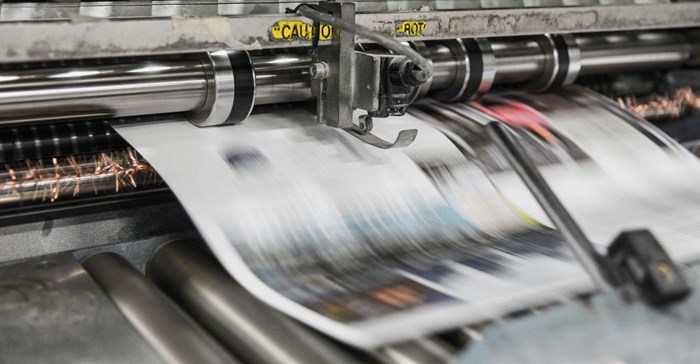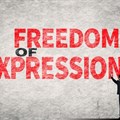In 1992, two years before the end of apartheid, Nelson Mandela bemoaned the state of South Africa’s print media. He said the media’s domination by middle-class males from the minority white population posed the biggest threat to freedom of expression in the country.
The same year, the African National Congress under his leadership adopted a media charter calling for all citizens to be empowered with the necessary information and contesting views to make informed choices. “An ignorant society cannot be democratic,” it declared.
What’s there to celebrate about freedom of expression and the media?
The state of media freedom in South Africa is healthy.
According to the latest Freedom of the World 2024 findings by Freedom House, the American advocacy and research group supporting democracy, freedom of expression is generally respected. South Africa scores an impressive three out of four for having “free and independent media”. Independent civic groups can expose government malpractice and efforts to encroach freedom of expression.
Freedom House says the country has a “vibrant and adversarial media landscape”. This is a far cry from the suppression of journalists during apartheid, when there were about 100 laws that censored the media. Journalists were harassed, tortured, jailed and beaten for telling the truth.
What should be particularly celebrated is the power of investigative journalism in the last 30 years. It has helped to expose government corruption and other societal misdemeanours.
Key examples include:
- The capture of the state for private gain during President Jacob Zuma’s tenure (2009-2018)
- Looting that collapsed VBS Mutual Bank
- Exposure of sexual crimes and missing millions at a cult, KwaSizabantu
- Massive corruption at the National Lottery.
What are the threats?
There have been worrying incidents, lawsuits and policy proposals designed to intimidate the media.
They include:
- The proposal by the governing African National Congress party in 2010 for a punitive statutory media appeals tribunal that could see journalists jailed
- The Protection of State Information Bill, 2010, described as “anti-democratic” (it was not passed into law)
- The State Security Agency’s monitoring of journalists and tapping of their phones
- Former president Zuma’s attempts to privately prosecute legal journalist Karyn Maughan. She saw the move as an attempt to discourage reporting of his corruption trial. The high court found it was done with the intent to intimidate and harass her and prevent her from performing her duties as a journalist.
Luckily these are isolated occurrences.
Media freedom is under unprecedented attack globally, but not in South Africa.
How transformed are the media?
Despite policies to increase the representation of the previously disadvantaged in the structures of the media, the legacies of apartheid persist in democratic South Africa.
Much research, including my own, has revealed that “race” is still the distributing power in media content, audiences, ownership and management of media institutions.
- In print media content, blackness is still associated with negative characteristics. This can be seen, for example, in the coverage of labour and service delivery protests. It was also evident in the coverage of the 2012 Marikana massacre. Similarly with coverage of black leadership, black labour, and the economically marginalised and people in rural areas.
- Access and audiences reflect historical inequalities. Wealthier and urban audiences have a wide choice of media while rural and poor audiences have restricted access.
- Media ownership, management and boards show white privileged access. The Mail and Guardian in 2019 found that the media were still run mostly by white people: the boards of media houses comprise 41% white, 24% African, 17% coloured, 16% Indian and 2% of people from elsewhere.
The media today face challenges Mandela could never have anticipated. What are they?
Media theorist Michael Schudson argues that the outcome of news processes can be related to the structure of the state and economy and to the economic foundation of the news organisation.
The country’s neoliberal capitalist economy is a threat to media freedom, which Mandela most likely did not anticipate.
The power of neoliberalism in South Africa – an economic ideology that favours the free market where private companies rule and government plays a secondary role – is evident in various ways. Topics, voices and economics news are driven by elite concerns. It’s also seen in class continuities, hyper-commercialism, sensationalism and sameness in content across newspapers.
Add to that “juniorisation” – young and inexperienced newsrooms – shrinking of budgets for investigative journalism, as well as a media market structure with only a few owners.
These have dire implications for media freedom, diversity and the media’s watchdog and public interest roles.
For instance, cultural imperialism theorist Herbert Schiller states that among the greatest threats to freedom of expression is the monopolisation of the market by media moguls leading to the monopolisation of the marketplace of ideas.
The digital age and rise of such tech giants as Google have posed new challenges for media freedom, which can also be seen in South Africa.
Google’s abuse of its dominant market position – not government – is seen as the biggest threat to press freedom through its secretive and dominant control of online news distribution.
What can be done about the challenges, or are South Africa media doomed?
There is much to celebrate about the critical role the media have played in 30 years of democracy.
There is a platform for robust debate, promoting accountability and a thriving reflection of South Africa’s diversities and cultures. This is especially so through the public broadcaster’s radio and television stations. Hundreds of community radio stations across the country also play a part.
Many of the challenges the media face require a critical assessment of what has worked or not in the last 30 years.
Perhaps a concerted effort is needed to bring back the alternative media, like the anti-establishment Weekly Mail and Vrye Weekblad that were so successful during apartheid. That way, new players can diversify the current media monopoly.
Nathan Geffen and Anton van Zyl 8 Mar 2024 Transformation of the media to represent the diversity of people and their perspectives has not been achieved.
As the legal scholar Joel Modiri aptly states, in a racially stratified society such as South Africa, to transcend race one must openly confront racism.
Policies supporting transformation should be race-conscious and open up possibilities for genuine transformation and racial justice.
This article is republished from The Conversation under a Creative Commons licence. Read the original https://theconversation.com/south-africas-media-have-done-good-work-with-30-years-of-freedom-but-need-more-diversity-228790article.







































